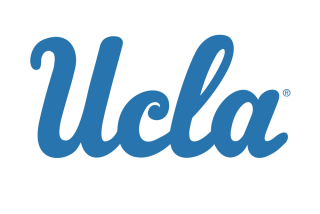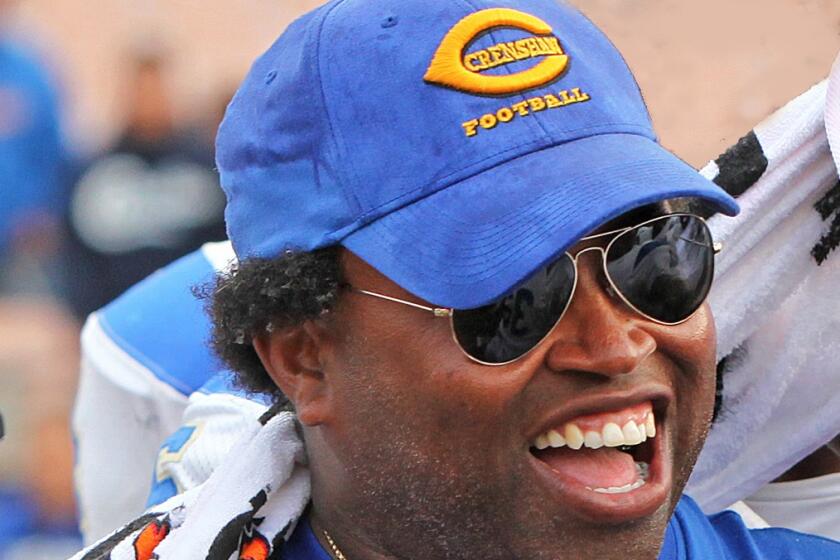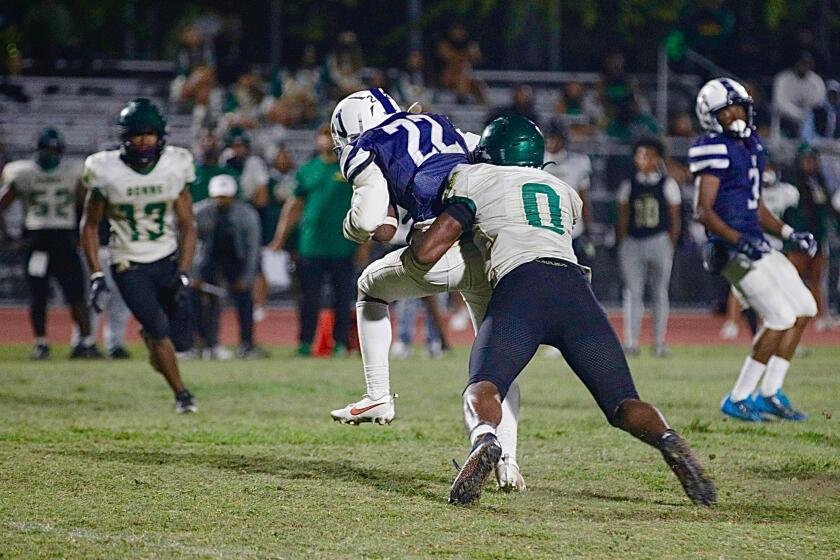NCAA Reduces Scholarships, Booster Activity
SAN DIEGO â Delegates to the annual National Collegiate Athletic Assn. convention stubbornly refused Thursday to withdraw key legislation and refer it to the special convention scheduled for next summer, as the Presidents Commission had so politely requested.
Instead, they insisted upon voting on some of those key cutback issues--and they voted just as the Presidents Commission wanted.
They cut football scholarships from 30 to 25 a year, cut menâs and womenâs basketball scholarships from a total of 15 to 13, eliminated part-time assistant basketball coaches and limited the volunteer assistants.
They also, apparently, took boosters out of recruiting by passing a rule that prohibits boosters from all contact, including letters and phone calls. And they closed a loophole in Proposal 48 on academic standards for freshmen by ruling that an athlete who did not meet academic standards his first year would have only three years of eligibility after that, even if he paid his own way to school the first year.
While some of the moves had been expected, the cost-cutting measures involving scholarships were expected to be withdrawn and considered as a package in June.
First thing Thursday morning, though, there was a challenge to the plan of the commission to have certain measures referred to their committee.
Michael Heyman, chancellor of the University of California, told delegates in the Division I-A business session why his ad hoc committee wanted to have several proposals withdrawn, including two that were scheduled for a final vote.
Commissioner Tom Hansen of the Pacific 10 immediately moved to withdraw the proposal to cut back the number of football scholarships.
Homer Rice of Georgia Tech challenged the withdrawal, however, prompting debate, a vote by a show of paddles, a call for a recount and, finally, the defeat of the movement to withdraw. The motion to reduce the number of scholarships then passed with no count necessary.
Was that an attempt by the delegates at this convention to show the Presidentsâ Commission that they did not intend to follow meekly, but rather to conduct their own business?
âSure, sure, thatâs what it seemed to be,â Heyman said. âBut thatâs OK. As long as we keep going in the right direction.
âThe reason we wanted to withdraw some of these proposals was to maximize the prospect of their passage. If these motions fail here, weâre in trouble at the special convention.
âThis turned out to be a wonderful straw vote on what weâre trying to accomplish, and it passed. If we get licked on a motion to withdraw, but then the motion passes, weâre going in the right direction.
âWeâll just start in June with a status quo thatâs a little closer to where we want to be.â
The new rule limits the number of initial scholarships but leaves the total at 95. That should cut costs some, and it should encourage coaches to keep their existing scholarship athletes in school.
Another proposal sponsored by the Pac-10, to cut football staffs by one assistant coach, was referred to the committee, along with several other similar cutback issues including proposals to cut the amounts of some scholarships.
NCAA President Jack Davis of Oregon State said that he interpreted the votes for cutbacks not so much as a challenge to the presidents but as an indication that the membership recognizes an urgent need for the cutbacks.
âThe membership felt it was imperative to address these issues now,â Davis said. âSome of them have their backs to the wall.
âI think the message is that the membership is highly supportive and in harmony with what the Presidentsâ Commission plans to do in June.â
Heyman, too, concluded that the mood of the convention was in concert with the mood of the presidents but said there would still be plenty of work to be done in June.
âI think we all agree that we need to seek a better balance, but we might have a difference of view on where the fulcrum is,â he said.
More to Read
Go beyond the scoreboard
Get the latest on L.A.'s teams in the daily Sports Report newsletter.
You may occasionally receive promotional content from the Los Angeles Times.










